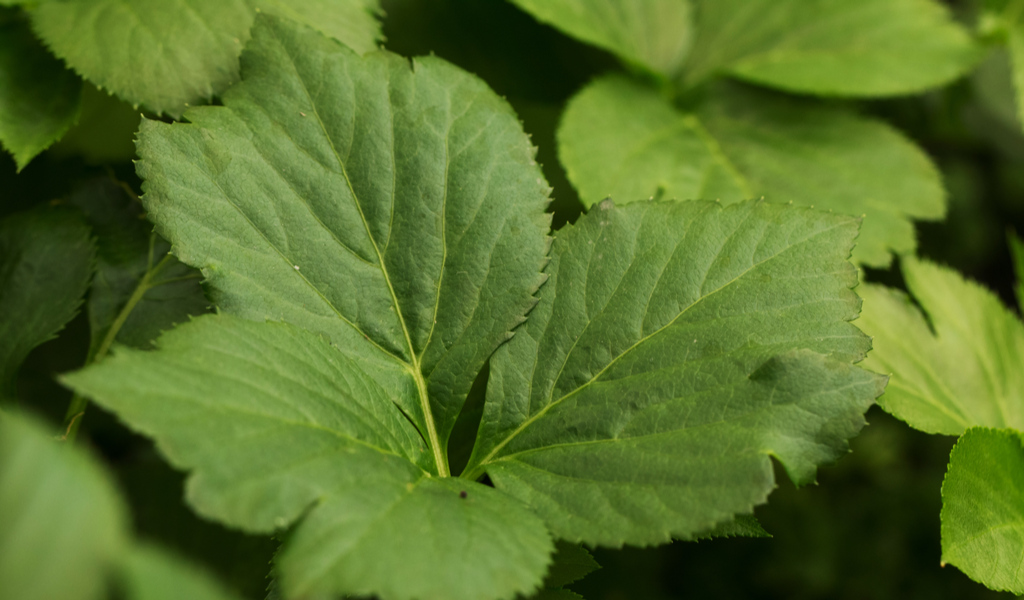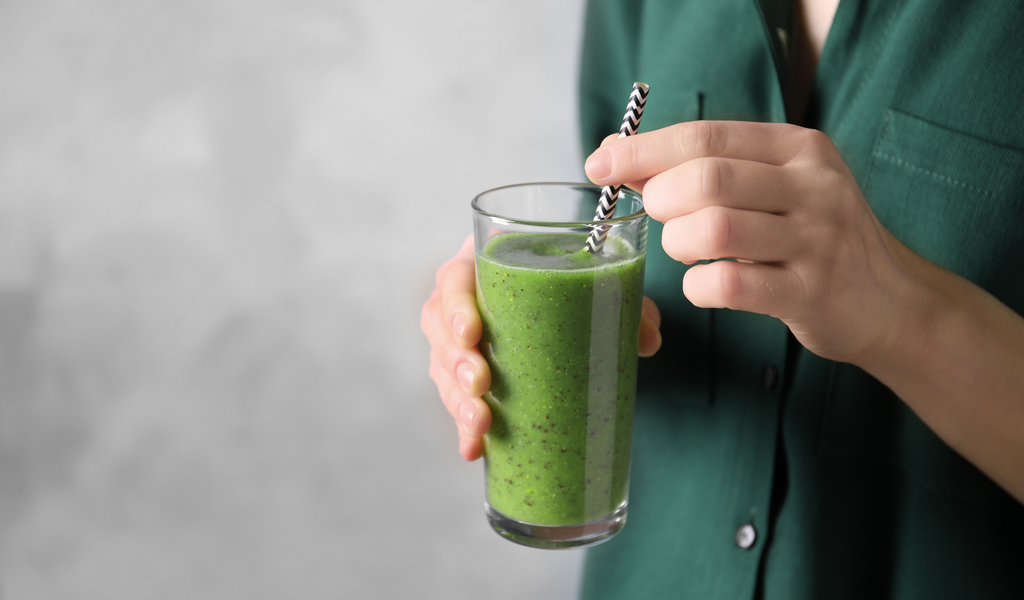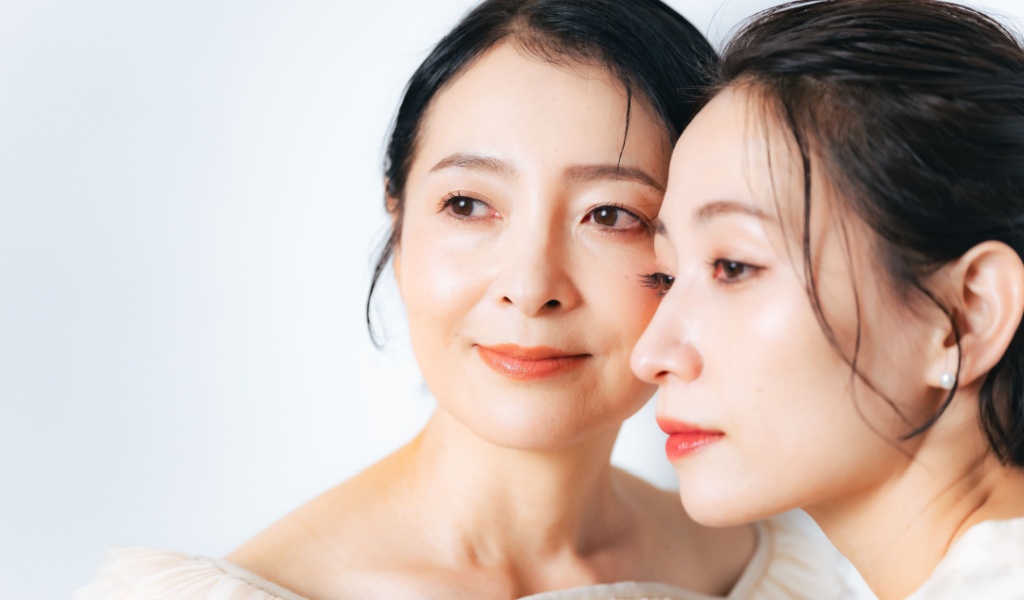Ashitaba is a leafy green herb that is a common addition to the diet of the Japanese people. While we can all agree that the Japanese seem like they do not age, could it be that ashitaba is the reason behind their flawless skin?
If you were to believe the sensational headlines, yes, it is. After all, the name of the plant literally translates to “tomorrow’s leaf”. However, there is more to it than making blanket statements such as that.

Angelica Kaiseki Koidzumi, better known as Ashitaba is a large herb, a flowering plant that is from the species of the carrot family. Traditionally, it has been used in Japanese medicine for digestive problems, high cholesterol, and other medical conditions.
The belief that ashitaba could be the modern-day equivalent to the fountain of youth came about after a study published in Nature Communication by Austrian researchers found that the herb contains several anti-aging compounds that could help slow down the effects of aging in the human body. However, experts say that this research is still in its early stages and doesn’t actually prove the hypothesis that ashitaba’s anti-aging properties will actually work on humans.
The Study
Billions of dollars have been poured into research to help increase life expectancy, but the results have been disproportionate. Much hasn’t been achieved in the way of increasing health spans or increasing the period of life when health conditions aren’t a factor in a person’s life, say the authors of the study. They proposed that a compound found in the ashitaba plant can help prolong youth.
Ashitaba contains a variety of nutrients, including a flavonoid (or a plant-based disease-fighting nutrient) called 4,4′-dimethoxychalcone (DMC). Researchers from the University of Austria and other institutes identify DMC as a “natural compound with anti-aging properties”. They say that it can help slow down the cell aging or degeneration process that ultimately leads to chronic health conditions like heart disease and cancer.
The study started out by testing the lifespan of worms and fruit flies when affected by DMC, finding that there was a 20% increase. When tested on mice, the compound appeared to protect hearts during a blood flow blockage.
When tested on human cells, researchers found that DMC appeared to slow down senescence, the period of a human being’s life where they are considered to enter permanent aging. Senescence is the process that causes cells to stop dividing and start growing permanently, and DMC slows aging by inducing autophagy, a process that counteracts senescence by recycling the body’s damaged cells and removing them in favor of newer, healthier cells.
Intermittent fasting and exercise are some of the ways that have been previously proven to stimulate autophagy. Inefficient autophagy could result in the degeneration of cells, leading to severe illnesses like cancer. According to the authors of the study, if DMC in ashitaba could trigger autophagy and slow cell aging in humans, then they could live longer with fewer chronic health conditions.
Does Ashitaba Slow Aging in People?
There is enough evidence to merit further research into this claim, but as of now, there is no definitive answer to this question. Regardless of what the headlines may make you believe, the research is in its very initial stages and is not enough to validate these claims.
Sharon Zarabi, RD, CDN, CPT, program director of bariatric surgery at Lenox Hill Hospital in New York City seems to agree. “The science claims from this study are very limited, and results are based on mice and isolated in one form. There is scarce evidence that ashitaba actually works,” she said.
Beyond Anti-Aging
The Japanese have used ashitaba in traditional medicine for ages, so there may be something to be said for the health benefits of the herb, disregarding its claim of slowing down aging. The plant is rich in vitamins, minerals, and antioxidants. While there is still a lot to be understood about the medicinal properties of ashitaba, it does not mean they do not exist. After all, science is constantly catching up with folk medicine!
Few studies have even been conducted to explore this. For instance, one study found that animals who consumed ashitaba produced less stomach acid, making it a potential treatment for heartburn. Another study found that rats that ate ashitaba had lower LDL or “bad” cholesterol, as well as lower total cholesterol and triglycerides numbers.
However, there haven’t been any studies conducted in humans that study the effects of ashitaba, only lad studies of human cells. These do not always translate to real effects in humans, says Ginger Hultin, a Seattle-based registered dietitian, spokesperson for the Academy of Nutrition and Dietetics, and owner of a dietitian practice called Champagne Nutrition.
“There are so many great antioxidant flavonoids in all plant foods, and [DMC] is one of many. 4,4′-dimethoxychalcone exists in ashitaba, but this study was done on organisms ranging from yeast to mice. It’s so hard to know how it works in humans,” she said.
How to Consume Ashitaba
Ashitaba leaves can be consumed fresh, in a salad, or juiced. They may not be widely available, but specialty stores may carry them. Alternatively, ashitaba can be taken as a dietary supplement or with herbal compounds. Although it’s best to talk to a doctor before going this route.
“Unfortunately, there have not been extensive human studies performed on this herb, so the safety and effectiveness are largely unknown,” Hultin said. “Much of the research done has taken place in vitro — in a lab setting — or on animals. Make sure that you’re getting a quality product by looking for third-party testing on the label to ensure safety.”
As for the right dose of the herb, there isn’t one that is scientifically proven.
“Studies are actually currently lacking sufficient evidence to list potential reactions, herb/supplement or drug interactions, or proper dosage, so that’s always a red flag for me,” Hultin said. “Many herbals do have some interactions with medical conditions or medications, so I’d use caution before starting something like this and definitely speak to your physician about it.”

A Final Note
Ashitaba may not be the anti-aging miracle that you were looking for, but it is still a healthy leaf that can be beneficial when added to your diet.
“There are some wonderful nutrients in ashitaba, but you get these same kinds of nutrients from all the plant foods we eat in the diet,” Hultin said. “There’s not just one ‘fountain of youth’ plant. It really comes down to how you treat your body daily over a long period of time. Supplements are not the answer, rather the type of lifestyle you live and how you care for your body.”
Zarabi added, “We find one plant in a faraway destination, want to bottle it up in a pill form and source it around the world as its claim to fame for fighting disease. Let’s just stick to the basics and eat a balanced diet and exercise to improve our telomeres and anti-aging properties.”



